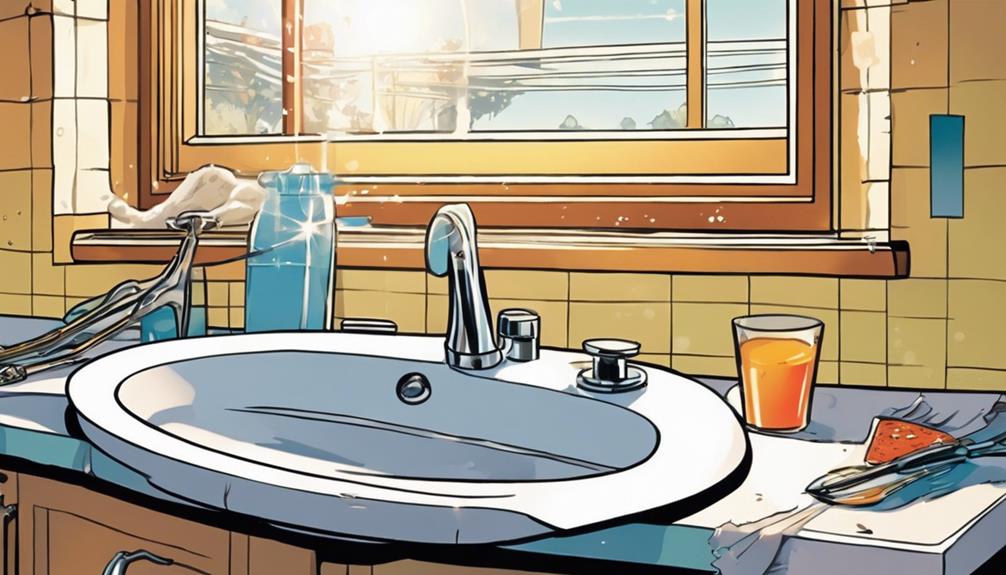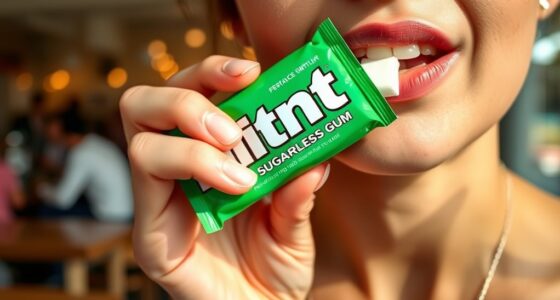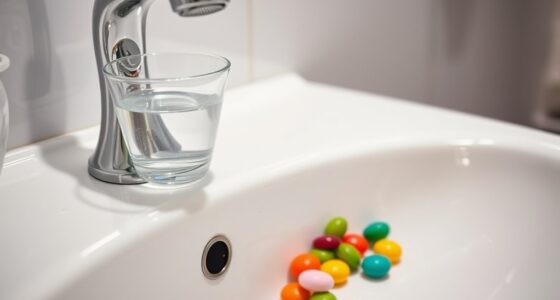You should never brush your teeth right after breakfast because it can damage your enamel. Foods like citrus and coffee can soften enamel for up to 45 minutes. When you brush too soon, you risk further eroding this weakened enamel. Instead, rinse your mouth with water to help neutralize acids and wait about 30-60 minutes before brushing. Brushing before breakfast is a better option, as it removes overnight plaque and prepares your teeth for the day. Want to discover more tips about maintaining your oral health routine? There's a lot more to explore!
Key Takeaways
- Brushing immediately after breakfast can damage enamel softened by acids from food for 30-45 minutes.
- Acidic foods, like citrus, increase the risk of enamel abrasion if brushed right away.
- Sugary breakfast items promote bacteria growth, increasing cavity risk if not managed properly.
- Waiting 30-60 minutes after eating allows saliva to neutralize acids and remineralize enamel.
The Risks of Brushing After Breakfast
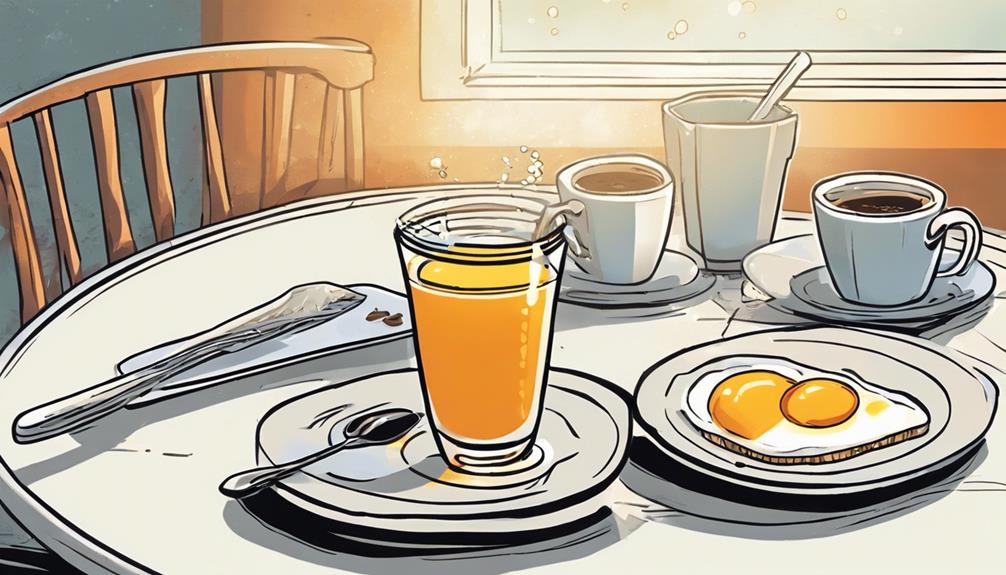
Brushing your teeth right after breakfast can actually harm your enamel due to the acids in your food. When you consume acidic foods like citrus or coffee, the acids temporarily soften your enamel for about 30 to 45 minutes. If you start brushing teeth immediately after eating, you risk damaging this weakened enamel. This period is essential because your enamel becomes more vulnerable to abrasion during the first half hour after exposure to acids.
Moreover, sugary breakfast items can increase bacteria production in your mouth. If you brush too soon after eating, you might spread this bacteria further instead of allowing your saliva to help manage it. Saliva plays an important role in neutralizing acids and remineralizing enamel. By waiting at least 30 minutes after breakfast, you give your body the chance to protect your teeth effectively.
If you're keen to freshen up after breakfast, consider rinsing with water or chewing sugar-free gum. These options can help mitigate the immediate effects of acid before you brush, promoting healthier enamel preservation in the long run.
Ideal Brushing Timing

Timing your brushing can considerably impact your dental health, especially if you consider how the acids from your breakfast affect your enamel. Brushing after breakfast may seem like a good idea, but it can actually do more harm than good. Instead, you should wait at least 30-60 minutes after consuming acidic foods to allow your saliva to neutralize these acids and help remineralize your enamel.
Here are some tips for ideal brushing timing:
- Brush before breakfast to eliminate overnight plaque and bacteria.
- Wait 30-60 minutes after eating to prevent enamel damage.
- Rinse your mouth with water after breakfast to help wash away acids.
- Maintain a consistent brushing routine, ideally twice daily at the same times.
Breakfast Foods and Oral Health
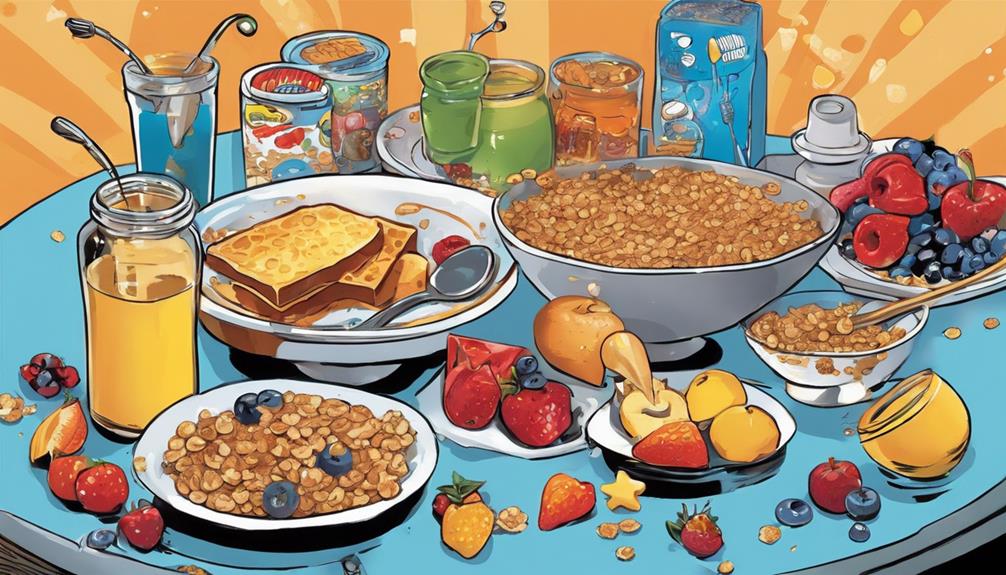
Certain breakfast foods, especially those high in acidity and sugar, can pose a significant threat to your oral health if consumed carelessly. Foods like citrus fruits and juices weaken your tooth enamel temporarily, making immediate brushing after breakfast harmful. Instead of brushing right away, give your saliva about 30-45 minutes to remineralize your enamel. This waiting period is essential for maintaining your dental hygiene.
Sugary cereals and pastries are also common breakfast culprits. They contribute to bacteria growth in your mouth, increasing the risk of cavities if plaque isn't removed effectively beforehand. If you do indulge in these breakfast foods, rinsing your mouth with water right after can help neutralize acids and wash away food particles. This simple action prepares your mouth for more effective brushing later on.
To protect your tooth enamel and overall oral health, consider timing your brushing routine wisely. Brushing before breakfast can safeguard your teeth from the damaging effects of these foods, ensuring your dental hygiene remains intact throughout the day.
Prioritizing your oral health will pay off in the long run, so be mindful of the breakfast foods you choose and when you brush.
Recommended Oral Care Practices
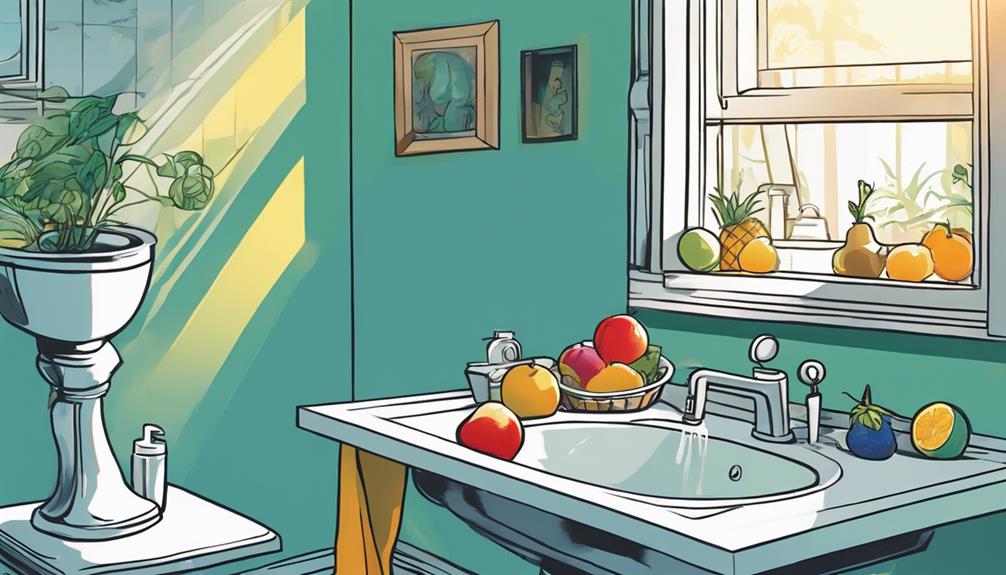
To maintain ideal oral health, practice effective techniques like brushing your teeth before breakfast and waiting to brush after consuming acidic foods. This helps protect your enamel, which can be weakened by acids in your breakfast.
Here are some recommended oral care practices to enhance your routine:
- Brush twice daily: Make sure to brush your teeth for at least two minutes each time.
- Use fluoride toothpaste: It creates a protective barrier on enamel, especially after eating acidic foods.
- Rinse with water: Swishing with water after meals can help neutralize acids and prepare your mouth for brushing.
- Choose a soft-bristled toothbrush: It's gentler on your gums and enamel, reducing the risk of damage.
Benefits of Brushing Before Breakfast

Brushing your teeth before breakfast offers essential benefits, like removing overnight plaque and bacteria that can lead to cavities and gum disease. By tackling these harmful substances first thing in the morning, you set a solid foundation for your oral health.
Using fluoride toothpaste during this routine creates a protective barrier on your enamel, safeguarding your teeth against acidic breakfast foods that can weaken them.
Additionally, morning brushing stimulates saliva production, which aids in digestion and helps neutralize acids from food. This process promotes better oral health while enhancing the taste of your breakfast by eliminating any lingering morning breath and bacteria. Imagine enjoying your meal without that unpleasant aftertaste!
Another important reason to brush before breakfast is to minimize the risk of enamel damage. When you brush immediately after consuming acidic foods, you increase the chances of enamel erosion. By brushing beforehand, you not only protect your teeth but also enjoy a more pleasant breakfast experience.
Frequently Asked Questions
Is It Bad to Brush Your Teeth After You Eat Breakfast?
Yes, brushing your teeth right after breakfast can be harmful. The acids in food soften your enamel, and brushing too soon might damage it. Wait at least 30 minutes to protect your teeth effectively.
Is It Good to Eat Breakfast Without Brushing Your Teeth?
Eating breakfast without brushing your teeth first can be a double-edged sword. It helps wash away overnight bacteria while stimulating saliva, which protects your mouth. Just be mindful of what you eat to avoid enamel damage. To improve dental health, it’s important to brush your teeth before eating breakfast to remove any plaque buildup. Additionally, choosing breakfast options high in fiber, such as fruits and whole grains, can help clean your teeth naturally and stimulate saliva production. This can further protect your teeth and improve overall oral hygiene.
Why Should You Not Brush Your Teeth Right After Eating?
You shouldn't brush your teeth right after eating because acids from food can weaken your enamel. Waiting allows saliva to remineralize your teeth, protecting them better when you finally do brush.
Should You Brush Your Teeth as Soon as You Wake Up?
Brushing your teeth first thing in the morning is like polishing a gem; it reveals your brightest smile. It clears away overnight bacteria, freshens your breath, and sets you up for a healthier day ahead.
Is It Safe to Brush My Child’s Teeth After Breakfast?
Yes, it is safe to brush your child’s teeth after breakfast. It’s important to remove food particles and plaque. Also, teaching good oral hygiene habits early on can prevent cavities and tooth decay. As a parent, you can also educate your child about the importance of taking care of their teeth, including understanding which teeth kids lose first.
Conclusion
So, next time you finish that delicious breakfast, resist the urge to brush like it's the golden ticket to a sparkling smile.
You might as well be rubbing sandpaper on your teeth! Instead, brush before you eat to protect your enamel and keep your mouth fresh.
Think of it as a superhero shield for your pearly whites, warding off the evil plaque and acid lurking in your favorite morning foods.
Your teeth will thank you!
